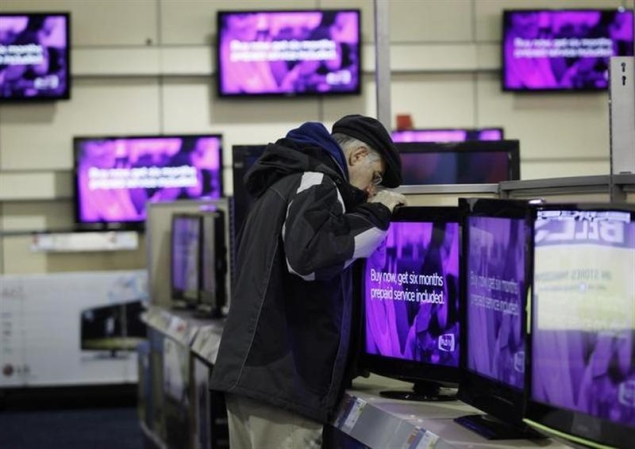- Home
- Internet
- Internet News
- FTC says unmarked, 'native advertising' may be illegal in some instances
FTC says unmarked, 'native advertising' may be illegal in some instances

The FTC said that a survey of online publishers found that 73 percent allowed native advertising, the digital descendent of the newspaper "advertorial" and television's infomercials.
"Marketers have ... moved past the banner ad into advertising that is more seamlessly, and inconspicuously, integrated into digital content," FTC Chairwoman Edith Ramirez said in a speech that opened a conference on "Blurred Lines: Advertising or Content."
"While native advertising may certainly bring some benefits to consumers, it has to be done lawfully," she said. "By presenting ads that resemble editorial content, an advertiser risks implying, deceptively, that the information comes from a non-biased source."
The website Buzzfeed.com is often cited as an effective user of native advertising.
Among the content on the website recently was a list of "13 dogs who get an A for effort," sponsored by the petfood brand Purina Pro Plan, and a list of "15 Creative Snowmen That Will Blow Your Mind," sponsored by Columbia Sportswear.
Ramirez said the FTC was not contemplating specific regulations to deal with the issue in the online space.
The FTC has already pursued companies using existing authorities if it concluded that the line between unbiased editorial content and advertising had been crossed.
In June of this year, the commission sent letters to certain search engine companies, which it did not name, urging them to ensure that they carefully distinguish search results from paid advertisements.
The major search engines are Google, Microsoft's Bing and Yahoo!.
The FTC also went after a company that used fake news sites to sell acai berry weight loss products, using logos like "One trick of a tiny belly" and similar come-ons.
The FTC caused a stir in 2009 when it issued guidelines requiring bloggers who endorse products to indicate if they have received any payment in cash or in products from the company involved.
Dan Jaffe, a top lobbyist at the Association of National Advertisers, said that nothing he heard from Ramirez on Wednesday indicated that the FTC planned to shift any strategies, but holding the workshop was a significant step.
Among the participants at the conference were publishing and ad industry representatives, consumer advocates, academics, and self-regulatory groups.
"This should be a signal to everyone that this is very high on their radar screen. ... The FTC is highly likely to step in forcefully in this area," Jaffe said.
Get your daily dose of tech news, reviews, and insights, in under 80 characters on Gadgets 360 Turbo. Connect with fellow tech lovers on our Forum. Follow us on X, Facebook, WhatsApp, Threads and Google News for instant updates. Catch all the action on our YouTube channel.
- Samsung Galaxy Unpacked 2026
- iPhone 17 Pro Max
- ChatGPT
- iOS 26
- Laptop Under 50000
- Smartwatch Under 10000
- Apple Vision Pro
- Oneplus 12
- OnePlus Nord CE 3 Lite 5G
- iPhone 13
- Xiaomi 14 Pro
- Oppo Find N3
- Tecno Spark Go (2023)
- Realme V30
- Best Phones Under 25000
- Samsung Galaxy S24 Series
- Cryptocurrency
- iQoo 12
- Samsung Galaxy S24 Ultra
- Giottus
- Samsung Galaxy Z Flip 5
- Apple 'Scary Fast'
- Housefull 5
- GoPro Hero 12 Black Review
- Invincible Season 2
- JioGlass
- HD Ready TV
- Latest Mobile Phones
- Compare Phones
- Lava Bold N2
- Vivo V60 Lite 4G
- Tecno Pova Curve 2 5G
- Lava Yuva Star 3
- Honor X6d
- OPPO K14x 5G
- Samsung Galaxy F70e 5G
- iQOO 15 Ultra
- Asus Vivobook 16 (M1605NAQ)
- Asus Vivobook 15 (2026)
- Brave Ark 2-in-1
- Black Shark Gaming Tablet
- boAt Chrome Iris
- HMD Watch P1
- Haier H5E Series
- Acerpure Nitro Z Series 100-inch QLED TV
- Asus ROG Ally
- Nintendo Switch Lite
- Haier 1.6 Ton 5 Star Inverter Split AC (HSU19G-MZAID5BN-INV)
- Haier 1.6 Ton 5 Star Inverter Split AC (HSU19G-MZAIM5BN-INV)


![[Partner Content] OPPO Reno15 Series: AI Portrait Camera, Popout and First Compact Reno](https://www.gadgets360.com/static/mobile/images/spacer.png)









